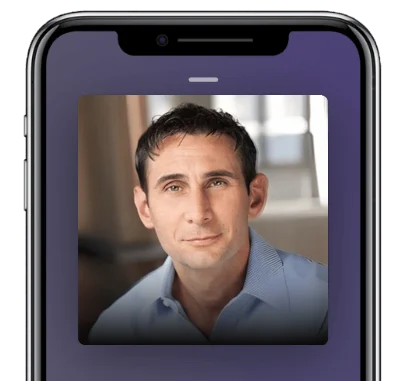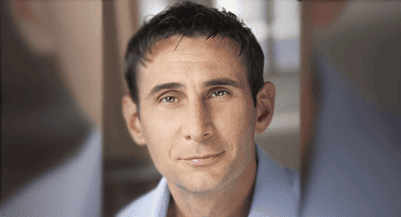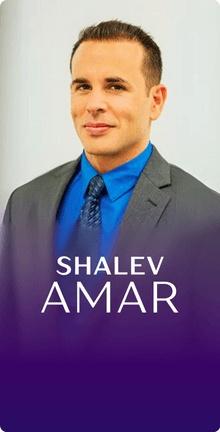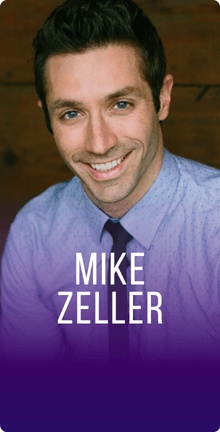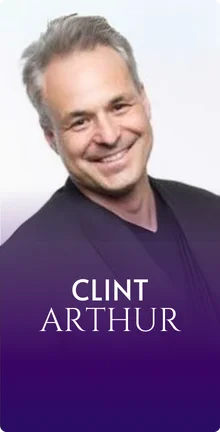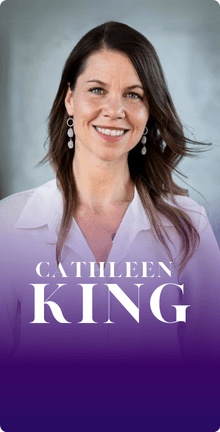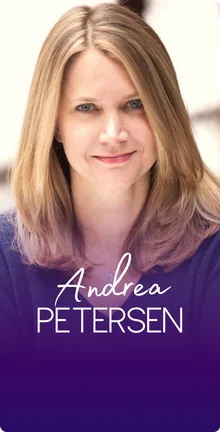Thanks so much for asking me. It’s always a pleasure to spend time with you.
Let’s talk about adversity and overcoming it as a starting point because this has been something that you quite publicly overcame and shared your experiences in the form of a book and in the form of creating a nonprofit, an organization that’s helping people and making a big difference. Let’s share some of this backstory if you don’t mind. Why did you write the book? Why did you create the CDV organization, the Childhood Domestic Violence Organization?
You and I have something in common in that we both grew up in homes or we faced our fair share of adversity. There are literally a billion people on the planet who did as well. A lot of people who experienced that adversity find a way to come out of it. As they do, they then want to help and give back and they see others who are facing that same adversity that who might be in childhood and they say, “How can I be helpful?” That’s very much how it started for me. Domestic violence was something that’s been in my family for generations. As I got to be an adult and I got out of that house, I wanted to help other kids who were in that situation. I started doing that in domestic violence shelters. I realized that there was a tremendous amount of research that was done by researchers who have given their lives to tirelessly research issues around what happens when you grow up living with domestic violence, but it wasn’t explained in a very simple way. You had to look into these research journals and try to dig out the information. That’s how it started. I started summarizing it for myself to be able to share it with some of the domestic violence shelters that I was working with. Then I found there was a need for it to be distributed in a more mainstream way. That’s how all the tools that we’ve created at CDV.org got started and it’s been about thirteen years now.
Many are victims but a lot of people who experienced the adversity of child domestic violence find a way to come out of it. Share on XThere wasn’t an organization already that was focused on domestic violence towards children. That’s more generically targeted towards the mother or the woman in the household, but no organizations were focused on the child in terms of the domestic violence.
Domestic violence organizations do a remarkable job with the resources they’ve got. They do a phenomenal job with what they’ve got, but their resources are somewhat limited. Childhood domestic violence is what happens when you grow up living in a home with domestic violence. There are more children in domestic violence shelters than there are adults. When you start thinking about that, there’s not that much funding, there is not a ton of awareness around childhood domestic violence versus domestic violence and other forms of childhood adversity. You can read articles that are out and it’s a terrible article about what happened between a man and a woman where it’s typically the man that’s violent against a woman. It will be the whole article and it will be like one sentence that will say, “And their two children were in the home.” You’ve got a 500-word article, you’ve got five words around the kids and the rest around the adults. That is most commonly how this issue is dealt with.
Isn’t there some scoring where the more abuse and adversity that you are faced as a child, the higher the score is? Then the more likely that you’re going to end up addicted to drugs or committing suicide or things like having even an impact on your performance and your brain and so forth. I forget the name of that score. Do you know what I’m talking about?
It’s a fascinating study. You are for sure an expert in your particular line of work and as you start to study new projects and new areas, you probably find one or two other studies or pieces of research or articles that get your attention and lead you to form conclusions around whatever you’re working on at any given time. The study that you referenced that had an impact on me was called the Adverse Childhood Experiences Study. It’s frequently referenced as the most important study that no one knows about. It goes into analytic detail of data sorts that are so extensive that their conclusions are no longer questioned. The more adverse childhood experiences that you face, there is a direct correlation with this ACE score or Adverse Childhood Experience score, as it relates to a whole potential host of problems that you can have in your life. If you happen to grow up with childhood domestic violence or growing up or living in a home with domestic violence, more than half of those people experienced five other adversities.
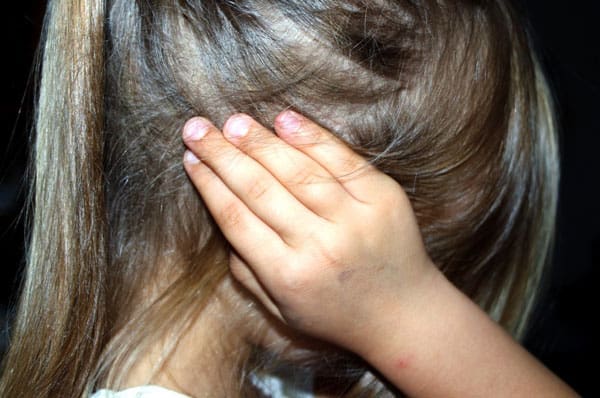
If you find someone who experienced childhood domestic violence, it’s very rare that’s the only adversity they faced. It’s almost like a conduit for all bad things happening in that house. It’s almost like an antenna on the top of that house back when there were antennas to pull into the TV signal. To pull in all other sorts of bad things like if there’s domestic violence in that house, then that young person is probably also experiencing another adversity like physical child abuse where they’re physically harmed. They might be experiencing emotional child abuse where words are used as weapons. They might be experiencing a situation where the parents are divorced, or where one is incarcerated. Where there are drugs and alcohol in the house or where there might be sexual abuse or where there’s poverty in the house and there are a ton of them. If you did face childhood domestic violence, the odds are you faced a bunch of others and they have scientific statistical evidence to suggest the impact that it has on your relationships, on your health, on your behaviors and on just your overall physiology.
If you have a higher ACE score because you’ve had all these adverse childhood experiences and you take the little test and it gives you whatever the number is, and you look at the impact of that, you’re ten times more likely to end up with a brain aneurysm or whatever. It’s like, “What do I do about that? I can’t rewrite my childhood. How do I avoid a brain aneurysm or whatever the thing that’s now ten times more likely to happen because of my high ACEs score?”
The great thing is that we have scientists on our advisory board and on our board of directors and who have built some tools that we utilize. Building resilience in the one who experienced CDV or childhood domestic violence is absolutely a skill that can be learned. It is a skill that must be learned. Just like if I want to learn the art of SEO, I probably better buy your book or more specifically find a way to work with you. It is a skill that one doesn’t just happen upon. It also is not accurate that because you’re now an adult that it’s all in the past. Actually, that’s the opposite because of the way that our brain works and that we seek to find evidence of what we believe is true.
If there were certain beliefs that got formed early on in childhood you should have been able to stop it and because you weren’t able to stop it, you’re weak and you’re worthless. Now, you’re guilty and you’re angry and resentful, these beliefs only get more entrenched as you get older because the brain seeks to find evidence of what it believes is true, but most don’t know this. They don’t connect the dots between the adversities they’ve faced in their childhood home, childhood domestic violence and where they are or aren’t in their life with respect to things like beliefs, relationships, their health, behaviors, their emotional health and their mental health. They don’t connect the dots.
Children age 4 to 10 have hypersensitive amygdala meaning, they carry on these abusive beliefs for a long time of what they perceive is true. Share on XI also heard that the amygdala, which is the fight, flight or freeze part of your brain that helps keep you alive and out of danger, that part of your brain does not understand the past or the future. Everything is in the present. Let’s say that you hear a certain type of footsteps and that reminds you of a previous time where you got mugged, it’s as if you are back in time re-experiencing that again, without recognizing that this is in the past. You could explain logically to somebody like, “This happened twenty years ago. Why are you having this reaction?” You can’t reason with the amygdala and the way that you reason with somebody’s neocortex.
You’re absolutely right and it’s obvious you’ve studied this because that’s something that most don’t understand. When you hear those simple words that you stated, it’s like if you do grow up in a home where you faced fear, threat and intimidation, even if it’s not directed towards you, it’s just what you feel. Your brain dumps cortical steroids and adrenaline into your body at a rapid rate. One in which is uncommon and unnatural in this society for a growing human at four, five, six, seven, eight, nine, ten, eleven or twelve years of age. You get a hypersensitive amygdala. I, even at 45 years of age, need to train myself constantly to make sure that I’m not reacting to something and interpreting it as there’s a reason for me to think that there’s fear, threat and intimidation right now, even in a business environment. It’s something that I need to and have to learn. It’s second nature, but it’s a skill that you have to learn.
You are hypersensitive or essentially hypervigilant. Just being on edge, on alert at all times for that potential threat that almost took your life or whatever in the past. You’re constantly on edge. That’s something that some people experience and that’s a horrible way to go through your life. You’ve got to somehow address that. I guess it’s related to PTSD.
You bring out PTSD. It’s not surprising and I don’t love dumping a lot of facts, but sometimes the stats are quite striking. When you realized that growing up experiencing CDV or growing up in a home, living with domestic violence, you are 74% more likely to commit a violent crime. Because of that, you snap quick reactions. You did not have certainty when you were young. Therefore, you crave it as you’re older and no wonder why you’re 50% more likely to abuse drugs and alcohol because that gives you a certain way to feel. The suicide rates stats are striking. Not to mention how this connects back to domestic violence. In the same way that the top predictor of whether you would get lung cancer is if you smoke, CDV is among the top predictors of whether you’ll be involved in a relationship where you will be either the one who is affected by domestic violence or is causing domestic violence. It’s the number one predictor as to whether you grew up living with it.
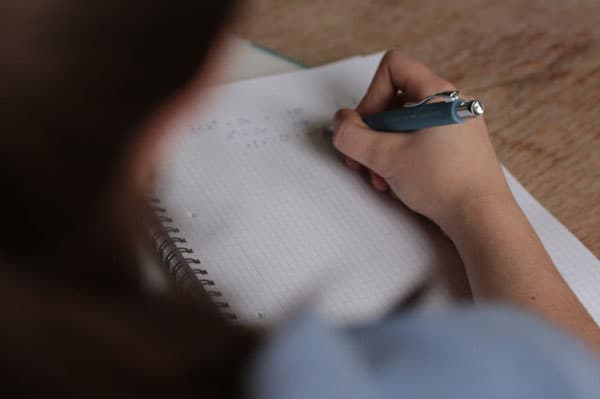
It’s not just if you were subjected to domestic violence directly, if you’re verbally, emotionally or physically abused. Witnessing that happening between your parents or caregivers or other people in the home, maybe it’s a sibling that’s getting the abuse, it profoundly affects you. That creates this ongoing cycle of dysfunction that you probably will end up passing on to your children. Even if you were not directly the recipient of the abuse in the same way, witnessing the abuse on others is a form of abuse. That is a way to get this dysfunction and adverse childhood experience or ACE in your life.
It’s one of the most challenging things about this. I’m involved in a number of different businesses and most of them have something to do with marketing and typically it’s with big brands. These are all brands that we know. This is high stakes marketing and by far, this is the most challenging project I’ve ever worked on because of many reasons. One of them is what you said, which is how is it that you’re not actually physically experiencing it, how are you impacted? It’s this word witness which is part of the problem because it’s a very weak word. It’s a passive word. It’s a word that for those who experienced it, it almost shames them and makes them so embarrassed. They can’t even talk about it. It’s like, “How could I possibly blame anything in my life for just something that I witnessed?”
At that age you actually didn’t witness it, you experienced it. I don’t know how many times I’ve heard from people who have grown up in this home. It’s got to be a thousand times by this point. I have heard people said and young people who now have grown up would say, “Any night of the week, I would much rather have experienced physical child abuse that night as opposed to having to endure waiting for it to start between my parents. Having to be so vigilant and either hide under a bed or come down and protect my siblings or try to break it up.” They would have much rather had the certainty of just experiencing the physical child abuse themselves and then calling it a day.
This idea of being a witness waters down the experience for the victim.
How is it possible that around 275 million children globally are victims of domestic violence and it has very low awareness? Share on XIt also waters down the messaging to the public. How is it possible that there are 275 million children globally who are in one of these homes and there are 725 million adults who weren’t? Yet childhood domestic violence has very low awareness. There are issues that impact far fewer people that have much higher awareness levels than this, but yet the impact is severe. It’s a question of communication. It’s a question of how is it communicated? What is the message? How can those who have experienced it be the ones who come and help bring this out to make sure that that next generation does not need to experience it? Also, the adults who were those children. You very well may have got out of that house. I got out of that house but are you truly living life to your full potential in all of the key areas? Are you using this experience as a reason why you can as opposed to why you can’t? They’re not necessarily using the experience, using what they earned because they earned this in childhood. It’s time for those who earned this pain in childhood to cash it in. Those are skills that absolutely can be learned.
Where do you learn these skills and how?
Part of the problem is that we even have trained a therapist who comes to us. We have a program that’s designed to train professionals because professionals have not been trained specifically on certain ACEs or certain adverse childhood experiences. We even have products that help professionals. We have products that help children. We have products that help adults who were those children. We have products that help adults who want to help their children. All the products that we have at CDV.org, all of the money goes back to the nonprofit. It’s all a nonprofit and all those tools are there.
What would be an example of a tool? Is it a training type DVD or something?
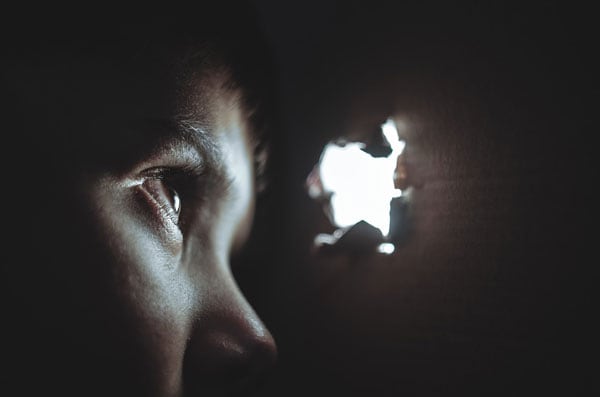
If anyone who grew up in one of these homes or cares about or love someone who did, the first thing that they need to know is and it’s a great question to ask, “Do you know what the least known adversity is that one can trace in their childhood home?” Then most people say, “What are you talking about?” “You’ve probably heard of domestic violence, but have you ever heard of childhood domestic violence?” Childhood domestic violence is what happened when you grow up living with domestic violence and that’s the thing. Most people, when you say that to them, if they either grew up living with it themselves or they’re connected to someone very close to them who might have either a boyfriend, girlfriend, wife, husband, friend or someone they worked with, they’re like, “I think that might be something that’s impacting them.”
Just the awareness of understanding that it’s a thing because people don’t even understand they’re confused. They don’t trace back where they aren’t in their life to this particular issue. It’s like how can you possibly train a dog if you haven’t named it? You must name it. That first step of naming it is very practical. Then as you go on from there, you start to realize that as you learn more about it and as you begin asking questions of yourself that you’ve never asked before, and you realized that literally one in seven people experienced this, many of which have built resilience, which is a skill that can be learned. Those first steps are essential and they typically come from a caring other. Someone who steps in and asks the question that probably wouldn’t be asked otherwise.
You mentioned resilience a couple of times. I self-identify as being resilient. I remember my uncle telling me when I was still a child at one point, “I’m amazed that you got through your childhood as well as you had. I wouldn’t have wished that on my worst enemy. You’ve become an amazing person.” I thought I didn’t know that any other outcome was going to happen or could have happened like ending up in jail. I just don’t see that being possible about me.
Congratulations for you doing that. When you also realized that you’re one of those people who you never could imagine it turning out any other way, part of that for sure is you and the choices you’ve made. Another part of that though is that rarely if ever occurs in someone unless the one had stepped in to help them see a truth that they couldn’t necessarily see for themselves. Someone has to step in at an early age in order for you or anyone to be able to do that. It’s not by divinity and it’s not just because you’re stronger. It’s because someone stepped in at a critical moment and share the truth with you that your brain took that as true and you believe that. It caused you to question some of the lies that were being encoded in you. To your own credit, you then chose to put in the time to unlearn that. As you started to unlearn it, the brain says, “I like that a bit better.” There’s always the one and we talked about this a lot at CDV.org. We talked about this a lot in any of the digital products that are on the site. We talked about this in the book, Invincible. It always comes back to the one. When you figure out who that one is, that’s a fun letter to write because normally the one does not realize what an impact they had.
The contribution and the good that you can do by sharing your story of what's possible is far greater than any potential fear of what someone else is going to think. Share on XI don’t know that at an early age, I had somebody who was the one. I think what happened was I was bounced around so much. I lived with my grandparents and then my grandmother passed away. I went to live with my aunt for two years. We moved to two different states in that process and then back to Ohio after those two years because my aunt was getting a divorce. Then I go live with my grandfather and then my mother, back and forth. They’re both mentally ill and it’s really chaotic until my grandfather gets sick and then he calls Children’s Services and I ended up going into foster care. It was very tumultuous, but there was a blessing in there because I recognized between all these different dysfunctional scenes that something wasn’t right. There’s this expression, “I don’t know who discovered water but I’m pretty sure it wasn’t a fish.” If you’re deeply embedded in a dysfunctional environment, you don’t see it.
I was bounced around from one dysfunctional environment to another. I remember going back to my grandparents after a visit, somehow I was able to discern that when I opened the drawer at my grandparents’ house, this was when my grandmother was still alive, and I saw this huge full drawer of soap slivers. I thought to myself as a little kid, “This is crazy.” That was a huge epiphany for me because it reset my world like, “These people are crazy.” They really were, certifiable. They would never go to get diagnosed, but I knew as a young child that they were crazy. My mother also, but she was more open about it, she had a diagnosis. That helped me to step back and see this as an environment and not as this is how the world works. That was very freeing for me.
What are they?
If you think about like back in the days of the Great Depression, people would be very careful to reuse stuff and use things to the very last bit and so forth. You get to the point where the soap bar is so small, you can’t use it anymore. What if you collected those little slivers of soap that were left like, “The bar is tiny now I can’t use it anymore. I’m just going to throw it in the trash.” They would keep them and they would collect them in a big drawer. For what? I have no idea. Maybe they wanted to aggregate them together and form a Frankenstein bar of soap or something. It made no sense to me because it makes no sense. If we were living in the Great Depression, it totally makes sense but we weren’t.
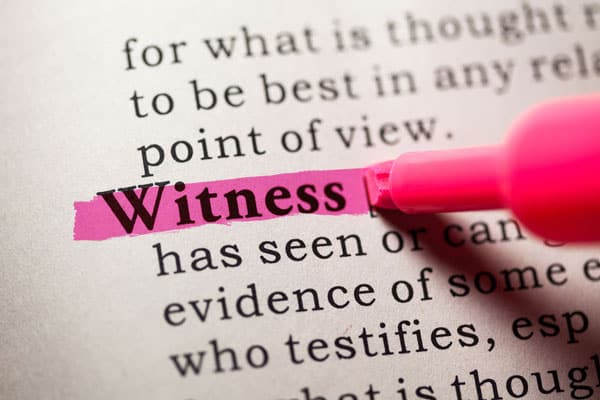
You were able to at least discern from that environment where a mental illness might be a little harder to pick up on, especially if you’re young. If the two people who you care about most in life are hurting one another and one in particular is hurting the other severely and physically and often, you’re able to discern that that’s a bad environment. That’s not how it’s supposed to feel. That’s not normal. Then as you keep going and you keep seeking, someone steps in. That somewhat can also be a book, it can be a podcast, it can be someone sharing their story. It doesn’t necessarily need to be someone very close to you.
In this day and age, it’s much easier to access that information than it was perhaps when you and I were younger because there weren’t as many sources of information to go to as effortlessly as my children have. That’s why for us, it’s important to be where they are. Childhood domestic violence is a tough topic to get someone to like on Facebook. It’s tough for somebody to choose to follow our Instagram and hide it. You’ve had to go through a number of steps to get to the point where you realize that you’re comfortable sharing this. That it doesn’t make you less, it actually makes you more. For this issue, we need to be there for them privately when they want to come to it. This is one of the last things that people want to talk about.
When you keep it secret, it festers and it’s not healthy. You can get a lot of healing out of just getting it out there and you can help heal a lot of other people too. In the last couple of years, I started going public about being a foster child. I kept that under wraps, not that I was super secretive about it. I didn’t see how that was beneficial to raise that. Then I had a change in heart and mindset or whatever about this. I started doing TV appearances, talking about being a foster child and having an unstable home, living with family members who were not good caregivers and ending up in a foster home. It actually is a huge blessing for me. My foster mother is somebody who’s a big part of my life still to this day. That I think is an important message and how can people be part of this solution and not look at foster kids as dysfunctional, bad kids who are likely to commit crimes and who are going to basket cases.
What are the big lies about foster kids and how can you combat these lies with truths and make a difference for these kids? I started doing TV appearances on that and I’ve done four TV appearances about being a foster child and sharing that message. It’s been healing and helpful to others too. It’s also good for business even though you might not think of it that way because having TV appearances about anything, it creates a celebrity status that you can then leverage in your business and your career. You can use bits and pieces of the TV segments and sizzle reels and screenshots on your website and so forth. They don’t even know what the topic was. You see some sizzle reel and it’s all these TV announcers and TV show hosts saying the person’s name at the beginning of the sizzle reel. They could have been talking about anything. They could have been talking about being a foster child. It’s been a very big positive for me to do this. The expression is, “The best time to plant an oak tree was twenty years ago. The second best time is now.” It would have been great if I would have thought to do this ten years ago and gotten some training on how to get on TV and all that. This all came about from going through a workshop on how to get on TV. Clint Arthur taught it, who’s been a guest on the show in fact. It ended up leading me in different surprising directions like talking about foster care and foster children.
Try to achieve more than you thought possible. Share on XI’m so happy that you chose to share it because people who have faced adversities in their childhood home, many don’t want to talk about it because, “I don’t want to be known for that nor do I want anybody thinking that I’m seeking your pity in any way.” Sometimes that’s a hard thing for people to get past and a lot of times they don’t ever share it. The reality is the contribution and the good that you can do by sharing your story of what’s possible is far and away greater than any potential fear of what someone else is going to think. People are going to think what they want to think anyway but for you to go and do that, that is yet another proof point on a more awareness around that issue that’s only going to be helpful. That can only possibly help those who are adults that have not yet gotten to that point where you are or children and young people who absolutely are the ones who deserve all the support they can possibly get. For those of us who have children, could you ever imagine your child being thrusted into a foster care system or being thrusted overnight into an environment where they had to experience even a tenth of what you and I experienced? No, you could never imagine putting your child in that environment and that’s someone else’s child. They’re all out there. That’s why what you did is super-serving and unselfish.
Back to this idea of resilience. I used to identify with being resilient. I had these recent shifts in perception that I think is worth sharing. Maybe you want to comment on it too. Resilient means that you can withstand a lot and you can bounce back. That’s true and that’s valuable. It’s certainly better than being not resilient, but then I started reading a book called Antifragile. It’s actually a business book. It’s by the same author who wrote the Black Swan and it’s really good. The concept behind antifragile is there are certain systems that are not resilient but they are antifragile. Meaning that they thrive in the chaos and the disorder and the destruction like our immune systems. Our immune systems are not resilient. If they were, we’d be dead. They thrive in being subjected to all these different pathogens. What systems are antifragile? Our economy, biological systems, the environment like Mother Nature is antifragile. If it were resilient, the whole planet would be dead. It’s antifragile. When you have this distinction between resilient and antifragile, then you can start noticing which things, which systems, which people like different things are antifragile. You can use this in investing like, “This is a company that is antifragile or this is a business model that is antifragile. I want to invest in this.” Now, I associate or self-identify as being antifragile. What are your thoughts on that?
I think it’s fascinating. I love the branding and I do believe it’s true. I believe it’s almost a tip of the triangle for people to try to get to because when you can realize that the experience that you went through very practically made you more. You had to solve problems that were more complex way earlier in life when perhaps others that are around you at that table. Whether it’s a board table or in a classroom or wherever, perhaps they didn’t have to solve such complex problems. Perhaps you had to experience pain, sadness, loss, hurt, fear at such an early age, at such a level that some people that are in that classroom with you or at that boardroom table with you in that meeting, they’ve never had to come even close to stretching themselves that far. When you realized that, then you begin to use that which you’ve earned to achieve more than you thought possible. It stretches you to do that which you thought was unattainable. It allows you to very practically have this new-found faith that because of what you went through, you know that you can endure it because this doesn’t dare compare what could you possibly experienced now from a standpoint of an obstacle.
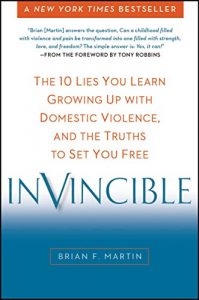
Not only endure it but thrive in it. Tony Robbins would not be Tony Robbins if he hadn’t gone through severe exposure to domestic violence.
I think he would probably say that he used that rage that he felt and pointed in the right direction for something that was positive. Otherwise, who knows where he would have ended up. That concept of you’re more than it. You’re more is one that allows you to have that faith and that belief which practically, very matter of factly, meaning what will I do differently perhaps than someone else. I will persevere when others will quit more frequently than not. That is why the things that I want to achieve in life, no matter where they may be, are ones that I typically end up getting to in time. Anyone who experienced these types of adversities, that same thing holds true for them. They just need to be availed to it. If a branding like antifragile helps people come to it faster, I am all for it.
What would be the next step for somebody who wants to either heal or help somebody heal? Is it to pick up your book, Invincible? Is it to go to CDV.org and check out the different products? Is it to go to some other resource?
Two simple things. If you believe you grew up in one of these homes, you for sure owe it to yourself to stop by at CDV.org at the very least go through the homepage and scroll. If you do that, your brain begins on learning some things that you didn’t quite understand. If you didn’t, but you think that someone you care about has. This question of, “I heard about something. I know we’re all aware of domestic violence, but I wasn’t aware of childhood domestic violence. Do you know that’s what happens when you grow up living with it?” I’ve seen remarkable things happen from that question. Then that first step is always change occurs in conversation. Conversation transforms the meaning. That’s how it begins. If you’re uncomfortable to do that, you can always send people to CDV.org and we get a lot of feedback on even that homepage scroll on a mobile device. It’s meant for age groups that are all the way down to elementary school to get some truths that they didn’t know were true. That’s a phenomenal first step.
Thank you so much, Brian. This was enlightening and powerful. I appreciate you sharing from the heart. Also, the way you show up in the world and the things that you do to help people is really commendable. I thank you on behalf of humanity for what you do in the world.
Stephan, thank you for all you do. You are a role model of what is possible and we would not be here unless for you. Thank you for the opportunity.
For our audience, thank you. It’s time to get out there and do something amazing. We’ll catch you on the next episode.

